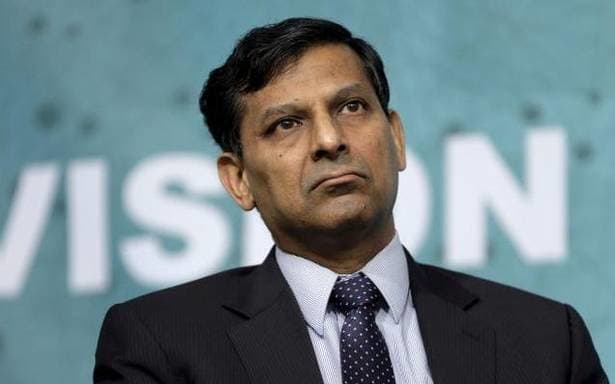Raghuram Rajan, the unofficial spokesperson of the Congress party who has become a habitual critic of every issue related to the Modi government, has criticized the idea of allowing the ownership of banks by the corporate houses, and proposed by an Internal Working Group (IWG) of RBI, the central bank of the country and the banking sector regulators.
Raghuram Rajan and the former deputy governor of RBI, Viral Acharya, who worked closely with him, recently released a joint statement in which they criticized RBI’s latest proposal of allowing the corporate houses to own and set up banks.
“Why now? Have we learnt something that allows us to override all the prior cautions on allowing industrial houses into banking? We would argue no. Indeed, to the contrary, it is even more important today to stick to the tried and tested limits on corporate involvement in banking,” the joint statement of Rajan and Acharya released on Rajan’s LinkedIn handle read.
Read More: Now Tatas, Birlas, Ambanis can set up their own banks. RBI all set to liberalise bank licensing
Raghuram Rajan, who was the Chief Economic Advisor of the country (2012-2013) during the UPA government and was later appointed the Governor of the RBI (2013-2016) for a three year period, presided as the CEA when the economic growth of the country slowed down, and his policies as the RBI governor led to slow down in lending, which ultimately killed the MSMEs.
Surely, the track record of Raghuram Rajan as the CEA or the RBI governor wasn’t too good, but he still keeps batting for the Congress party at times like a loyal member. Also, during Rajan’s tenure, not a single new license was awarded to new banks to improve the banking sector of the country, but now when the government and the RBI are working on ideas to improve the banking sector of the country, he is jumping in to derive his own conclusions.
“The history of such connected lending is invariably disastrous – how can the bank make good loans when it is owned by the borrower? Even an independent committed regulator, with all the information in the world, finds it difficult to be in every nook and corner of the financial system to stop poor lending. Information on loan performance is rarely timely or accurate. Yes Bank managed to conceal its weak exposures for considerable periods,” reads the joint statement.
Read More: India’s banking sector enters its golden era; the sector will grow at a breakneck pace
According to Rajan, ownership of banks by the corporate houses would lead to “concentration of political and economic power”. A self-avowed capitalist – Rajan is now concerned about the concentration of political and economic power and “politically connected lending” which was the hallmark of the UPA era economic policies. “Moreover, highly indebted and politically connected business houses will have the greatest incentive and ability to push for licenses. That will increase the importance of money power yet more in our politics, and make us more likely to succumb to authoritarian cronyism,” he wrote.
Economic policies need dispassionate analysis from academicians and intellectuals. A policy analyst must shed his/her ideological bias while reviewing a public policy, but when policymakers are turned into ‘icons’ for a particular ideology, they are forced to abide by that ideology in order to maintain the icon status, and Raghuram Rajan is doing exactly the same.
The criticism of any policy for the sake of maintaining an ideological position discredits the intellectual rigour of any policy analyst and the former governor of RBI, and Raghuram Rajan has been doing the same since he was relieved of his post by the Modi government. Raghuram Rajan returned to academia as the Professor of Finance at University of Chicago Booth School of Business and now he seems to have a clear ideological position as ‘liberal icon’ and a critic of the Modi government rather than being a dispassionate policy analyst.
